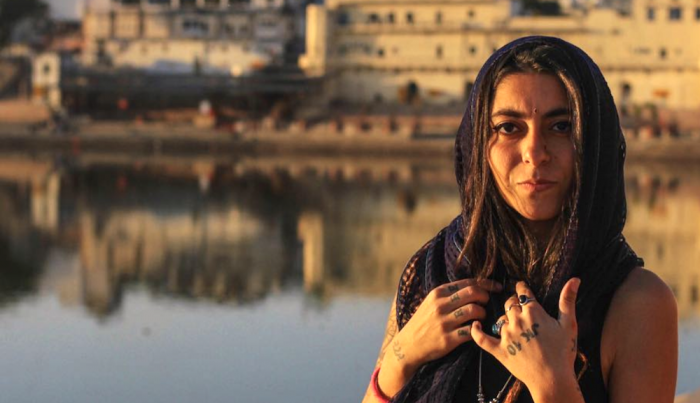Yesterday I finished “Dracula,” a limited series by Netflix.
I was amazed by the unanticipated plot twists, the ingenious script, and, above all, the ending.
Throughout the three episodes, we see that Count Dracula fears the cross, direct sunlight, and can’t step into a residence without being invited.
His fear of the cross, though, had nothing to do with the figure of God. In the last scene, Agatha Van Helsing realizes that Dracula fears the cross because it represents Jesus’ bravery in the face of death. Count Dracula acknowledges his fear of mortality and drinks Agatha’s blood, which puts an end to his perpetual life.
The ending hits the nail on the head. While we think that Dracula enjoys being immortal, the truth is, he fears becoming mortal.
Aren’t we all Count Dracula at heart?
Recently, the topic of death has been on my mind. I wonder why we genuinely enjoy the experience of living, yet deeply loathe the experience of dying. We all know the feeling: the deep breath we take when we’re on a top of a mountain, the delight we feel when dancing, exercising, or running. Everything that makes us feel alive is utterly soothing and undoubtedly priceless.
On the other hand, everything that threatens our existence is extremely terrifying: the turbulence on an airplane, having a car accident, being diagnosed with a dire illness, or having a near-death experience.
Although life and death are parts of the same cycle, birth will always be favored over annihilation. And just like Dracula, we relentlessly look, in our own ways, for immortality.
Whether we know it or not, there is still a taboo of talking about death. And if we don’t talk about it, we make fun of it. We do anything to deny the fact that one day our hearts will actually stop beating. Somehow, death seems far away, as if it will never find us. But it will. This is why it’s essential to understand our fear and learn ways to overcome it.
When we go through experiences that threaten our lives, our bodies send the primary warning that something’s wrong. For instance, if we almost fall off a cliff, we tremble, our hearts pound faster, our hands sweat, and we turn pale.
This fight-or-flight response is the body’s way to take action when in danger. Mentally, however, we realize that we might or could have died.
When we go through these horrifying experiences, it seems as if we’re petrified of losing our lives. We’re also worried about experiencing physical pain or the moment when our consciousness abruptly ends.
But, what do we fear the most? I’ve come to realize that our deepest underlying fear is the loss of “me.” In my past Buddhist courses, we meditated many times on death. As much as it’s painful, the Buddhist monk asked us to imagine our death—the reason, the feeling, and the experience.
The interesting fact was that everyone burst into tears upon imagining themselves dying—including me. It was puzzling. We basically mourned our own selves. At the time, I couldn’t understand this grief, but years later when I meditated again on death, I saw the bigger picture.
I tapped into my emotions as I imagined myself dying. Visualizing my last moments alive, I’ve grasped that I was afraid to lose who I am—not life itself.
Death threatens the annihilation of the self. The self comprises our gender, ethnicity, religion, opinions, beliefs, achievements, goals, perspectives, identity, and so on. The list is neverending. The self is an immense entity that is built from the moment of our birth. It is no wonder at the moment of death that we cling to it tightly.
We’ve all worked hard to become who we are today. Imagine losing years of hard work and dedication in a matter of seconds. It’s not easy, but it’s a fear we must overcome in order to reduce the intensity of death.
Think of the self as an illusory entity. It’s not solid, tangible, or even visible. Yes, we do see our achievements, memories, and opinions. They’re all around us in the books we bought, the certificates we hung on the wall, and the photo albums in the drawer. But these too are temporary. In a matter of seconds, they could be lost, burnt, or even forgotten.
That said, our attachment to the self doesn’t have a literal existence. We’re afraid to lose something that exists only in the realm of our thoughts, desires, and emotions. The fear of the self’s annihilation is great and not easy to manage, but let’s behold our own ephemeral reality.
Let’s enjoy what we own, what we do, and what we believe. But let’s not create an eternity out of them. Practice this idea by imagining your own death—just like I did. Practice accepting death and welcoming it the same way you would welcome a living experience.
When you come face-to-face with yourself, try not to keep it. Look at it with an open mind and appreciate the fact that you’ve had the chance to experience life. Know that there’s a time to come and a time to go.
As you practice your own annihilation with an open mind, you will realize that fear of death declines once the attachment to the self declines.

 Share on bsky
Share on bsky







Read 13 comments and reply